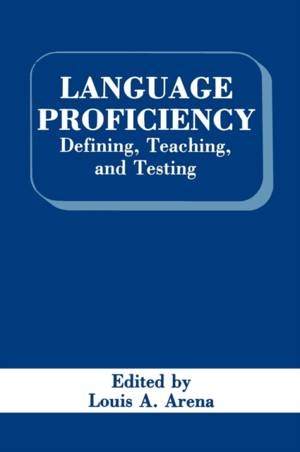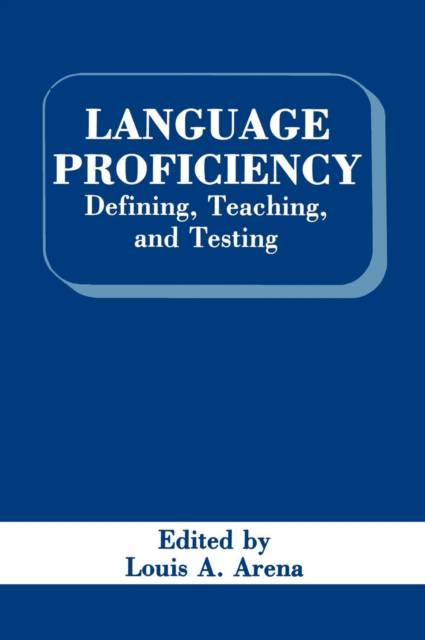
- Afhalen na 1 uur in een winkel met voorraad
- Gratis thuislevering in België vanaf € 30
- Ruim aanbod met 7 miljoen producten
- Afhalen na 1 uur in een winkel met voorraad
- Gratis thuislevering in België vanaf € 30
- Ruim aanbod met 7 miljoen producten
Zoeken
€ 176,95
+ 353 punten
Omschrijving
Louis A. Arena University of Delaware Newark, DE This monograph contains select, revised, and invited papers which deal with the topic, Language Proficiency: Defining, Teaching, and Testing. This topic was the theme of the eighth annual symposium held at the University of Delaware. The papers contained in this volume are invited papers or were originally scheduled for presentation and/or presented at the eighth annual Delaware Symposium on Language Studies. The papers combine research con- ducted in the areas of teaching, testing, and defining second language pro- ficiency within the profession of applied linguistics. They are divided into three principal sections: "Applied Linguistics and Language Pro- ficiency", "Language Proficiency in Reading and Writing", and "Testing for Language Proficiency". In Part I, Paul Angelis' "Applied Linguistics: Realities and Projections re the Teaching Profession'; sketches a historical portrait of Applied Linguistics, its definition, presence, and role in the profession that teaches second language proficiency. Angelis concludes that Applied Linguistics is still a young discipline in terms of substance, organization, and strategy, and that these three components will determine the prospects for the future of applied linguistics re the teaching profession. The next six papers address the issue of second language proficiency from various points of view. Kensaku Yoshida's essay "Knowing vs Believing vs Feeling: Studies on Japanese Bilinguals" concludes that some Japanese bilinguals are actually not necessarily bilingual because they very often face problems requiring other kinds of proficiency, i. e.
Specificaties
Betrokkenen
- Uitgeverij:
Inhoud
- Aantal bladzijden:
- 204
- Taal:
- Engels
- Reeks:
Eigenschappen
- Productcode (EAN):
- 9780306437106
- Verschijningsdatum:
- 31/03/1991
- Uitvoering:
- Hardcover
- Formaat:
- Genaaid
- Afmetingen:
- 178 mm x 254 mm
- Gewicht:
- 585 g

Alleen bij Standaard Boekhandel
+ 353 punten op je klantenkaart van Standaard Boekhandel
Beoordelingen
We publiceren alleen reviews die voldoen aan de voorwaarden voor reviews. Bekijk onze voorwaarden voor reviews.






